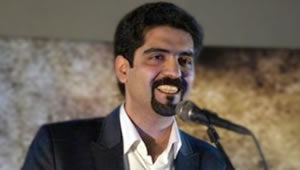
June 22, 2018
President Rohani has urged the Expediency Council to meet and vote on whether a Zoroastrian may hold a seat on a City Council. For more than five months, the Expediency Council has remained mum on the issue and failed to take it up.
“It’s really upsetting to see doubts cast on a non-Muslim after he wins the people’s vote in an election and questions are raised regarding whether he could be a member of a council or not,” Rohani said in a speech to a group of Sunni Muslim scholars in Tehran June 2.
“Of course, the Majlis has taken some good steps and we hope that the Expediency Council will make a positive decision in this regard,” he said.
Article 112 of Iran’s Constitution gives the Expediency Council the authority to resolve disputes between the Guardian Council and Majlis when they are deadlocked over an issue. It is the 12-man Council of Guardians that has ruled that no religious minorities can hold seats on City Councils in communities where that minority is not a majority. (No city in Iran is majority minority.)
In September 2017, a few months after he was re-elected to the Yazd City Council with more than 21,000 votes, Sepanta Niknam’s seat was suspended by court order after a Muslim candidate who did not win a seat in the elections filed a complaint.
Niknam, 32, is the head of the Zoroastrian Association, which is based in Yazd. He was first elected to the Yazd City Council in 2013 and served his entire four-year term with no one questioning his right to do so.
Recognized in the Constitution, followers of the Zoroastrian faith in Iran had dwindled to about 25,000 as of 2011, according to census data.
Yazd is home to some of the world’s most revered Zoroastrian religious sites. Followers of the ancient pre-Islamic faith have lived in the region for thousands of years.
In January 2018, after the Majlis and Council of Guardians failed to reach a compromise over the Guardian Council’s declaration that non-Muslims should be barred from running in Muslim-majority constituencies, the dispute was referred to the Expediency Council.
But that body, under its new chairman, Mahmud Hashemi-Shahrudi, has not yet even put the issue on its agenda. Niknam had been suspended but not dropped from the City Council while awaiting action by the Expediency Council. That suspension expired several weeks ago, so Niknam has now been dropped from the City Council despite the opposition of the council members themselves.
In a letter on behalf of the Guardian Council on April 18, 2017, its ultra-conservative secretary, Ahmad Janati, wrote that religious minorities could not stand as candidates in Muslim-majority constituencies because doing so would contradict the views of the founder of the Islamic Republic, Ayatollah Ruhollah Khomeini, “and is therefore against the tenants of Sharia [Islamic law].”
Clerics have also said that Sharia does not allow a non-Muslim to have a role in enacting laws that will govern Muslims. However, the Constitution reserves seats in the Majlis for three Christians, one Jew and one Zoroastrian who vote almost daily on laws that govern Muslims.


















